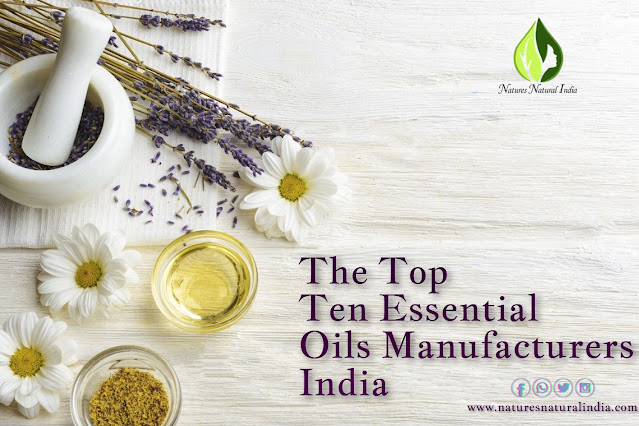What is implied by Pure Essential Oils and Carrier Oils?
Many of you would have read terms such as carrier oil and essential oil. It is beneficial to know what is meant by the terms ‘Pure Essential oil’ and ‘Carrier oil’ before using the products in real-life. Let us first understand it
Essential Oil – It is the oil extracted from the parts of different
aromatic plants. It is in a highly concentrated form containing the natural
essence of the respective plant.
Carrier Oil - Carrier oil is often referred to as base oil. It is
derived from seeds, kernels and nuts of the plant. It is a vital medium to get
an essential oil absorbed into the skin or scalp. Its dilution with essential
oil ensures no irritation, redness, burning sensation, or any other reaction
due to direct use of essential oil.
Each essential oil or carrier oil carries its own properties and offers
different benefits for us. The experts recommend Pure Organic
Essential Oil for different applications. The aromatherapy
centres prefer oils extracted through the cold-press method.
The following points will make the difference between the two clearer:
1. Aroma
The essential oils have their distinct and sometimes strong aroma, be it sweet,
spicy, citric, or other. In contrast, carrier oils are odorless or have a mild
aroma which is superseded by the scent of essential oil in a blend.
For example, essential oils such as bergamot oil, camphor oil, lemon oil,
frankincense oil, garlic oil, clove oil, lavender oil, etc. are in highly
concentrated form. They have a strong aroma and their few drops in a blend
would suffice the requirements of the user. While carrier oils such as aloe
vera oil, avocado oil, coconut oil, olive oil, etc. are odorless or have a mild
aroma.
2. Source and Method of extraction
Essential oils are extracted from the leaves, bark, and roots of plants through
distillation. In contrast, carrier oils are derived from seeds, kernels, or
nuts of the plant through the cold-press method. Many aromatherapy, spa, or
massage centers are closely connected with Pure Carrier Oil Suppliers for availing oils extracted through the cold-press method on
a continuous basis.
3. Colour
The essential oils derive their color from the original parts of the respective
plants. They have distinct hues that are retained in the lighter shade, on
dilution with carrier oil. In contrast, carrier oils are colorless or have
lighter hues. For example, olive (virgin) oil, coconut oils are colourless or
lighter hues. However, some essential oils are also colourless or of pale colors
while some others are reddish, brownish, or greenish in hue as per the respective
parent plant colour.
4. Absorbance
The essential oils may or may not be absorbed by the skin easily. Whereas
carrier oil easily penetrates the skin. It essentially acts as a carrier
vehicle for transferring essential oil on the skin or scalp.
5. Evaporation Rate
Essential oils are volatile in nature and their essence or substance may
evaporate sooner at a higher rate, while this is not the case with carrier oil.
Carrier Oils do not evaporate easily.
6. Cost and availability
Carrier oils are widely available at a comparatively lower price than essential
oils. Many essential oils carry the gist of extremely valuable and scarcely
available plants. They are costly to extract and avail by suppliers.
However, some carrier oils such as cashew nut, sweet almond, pomegranate, and
some others are not widely available and are also expensive.
7. Safety
Carrier oils are safe to be used on skin in their pure form.
However, it is advised not to use essential oils on inflamed or broken skin or
sensitive areas without blending carrier oil. Carrier Oils reduce the potency
of Essential Oils but they need to be blended to reach benefits and avoid any
intense effects.
For most of the applications, the blending few drops of essential oil with carrier
oil is advisable and safe. So, blend different kinds of Pure Organic
therapeutic grade oils and get desired effect.
References: https://naturesnaturalindia.weebly.com/blog/what-is-implied-by-pure-essential-oils-and-carrier-oils




.jpg)
Comments
Post a Comment